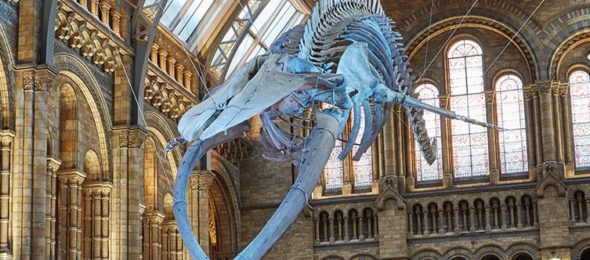November 24, 2020
12:00 – 1:30 pm GMT
This Zoom webinar is part of the multi-part conference programme “British Art and Natural Forces”
Speakers and papers:
Pandora Syperek (Research Associate at Loughborough University London) and Sarah Wade (Lecturer in Museum Studies at the University of East Anglia), ‘Curating the Sea: Oceanic Exhibition Making at a Time of Ecological Crisis’
Stefanie Hessler (Director, Kunsthall Trondheim), ‘Tidalectic Curating’
Miranda Lowe (Principal Curator at the Natural History Museum), TBC
Speaker Biographies
Pandora Syperek is Research Associate at Loughborough University London. She is currently preparing a monograph on the gendering of jewel-like objects in the Natural History Museum, London, and has published articles on gender in John Ruskin’s mineralogical curation, trans-animality in Victorian insect displays and queering the Blaschka glass models in the Coral Gallery. From 2016–2017 she was postdoctoral fellow at the Paul Mellon Centre for Studies in British Art. She has taught modern and contemporary art and display practices at Sotheby’s Institute of Art, University College London and York University.
Sarah Wade is incoming Lecturer in Museum Studies at University of East Anglia. Her research examines human-animal relations and representations of wildlife in contemporary art and exhibitions, particularly with regards to ecological concerns. She has published on extinction and ecology in contemporary art and curatorial practice. Wade was a co-curator of ‘Strange Creatures: The Art of Unknown Animals at the Grant Museum of Zoology’ (2015) and has also worked with various arts and heritage organizations.
Stefanie Hessler is a curator, writer and editor focusing on interdisciplinary and long-term collaborations with artists and researchers. She has curated exhibitions by artists such as Joan Jonas, Armin Linke, Tomás Saraceno, Jenna Sutela and Christine Sun Kim, and worked with institutions such as the São Paulo Biennale, Hamburger Bahnhof in Berlin, TBA21–Academy in London, Museum of Modern Art in Recife, FLORA in Bogotá and the Athens Biennale. She is the author of the book Prospecting Ocean (2019, MIT Press), editor of Tidalectics: Imagining an Oceanic Worldview Through Art and Science (2018, MIT Press) and director of Kunsthall Trondheim in Norway.
Miranda Lowe is a Principal Curator at the Natural History Museum, London with three decades-worth of collections management and curatorial experience caring for a plethora of historically important marine invertebrate specimens from both the HMS Challenger and RRS Discovery oceanic expeditions. She is passionate about the role museum exhibitions play in our understanding of the natural world and her research interests lie in ecology, zoology and marine biology.
For more information and to register, visit the event web page.
About the programme “British Art and Natural Forces”:
In the year 2020, the Paul Mellon Centre marks its 50th anniversary as an institution dedicated to the study of British art and architecture. It is a year in which artistic practice and the practice of art history have met with the unprecedented force of a global pandemic. This multi-part programme of research events focuses on the encounter between artistic and art-historical practice and the forces of the natural world. It places such encounters in both contemporary and historical perspectives.
In doing so, it aims not only to respond to the exigencies of the current moment, but to foreground some of the most vital activities and conversations taking place within the field of British art studies. In recent years, scholars have concentrated with new intensity on the overlaps between artistic, geophysical, biological and ecological bodies of knowledge. The series speaks to many of the new interdisciplinary collaborations that are currently shaping art-historical practice, where scholars of the visual arts are working across different subject-fields to explore natural histories, indigenous forms of knowledge, animal studies, concepts of the post-human and revitalised theorisations of the sublime.
It foregrounds the astonishingly rich and diverse representations of natural forces found throughout the history of British art. The programme will explore such representations in the light of current debates and theoretical frameworks, and with the acknowledgement that human agency and reflexive awareness are natural forces in their own right.








